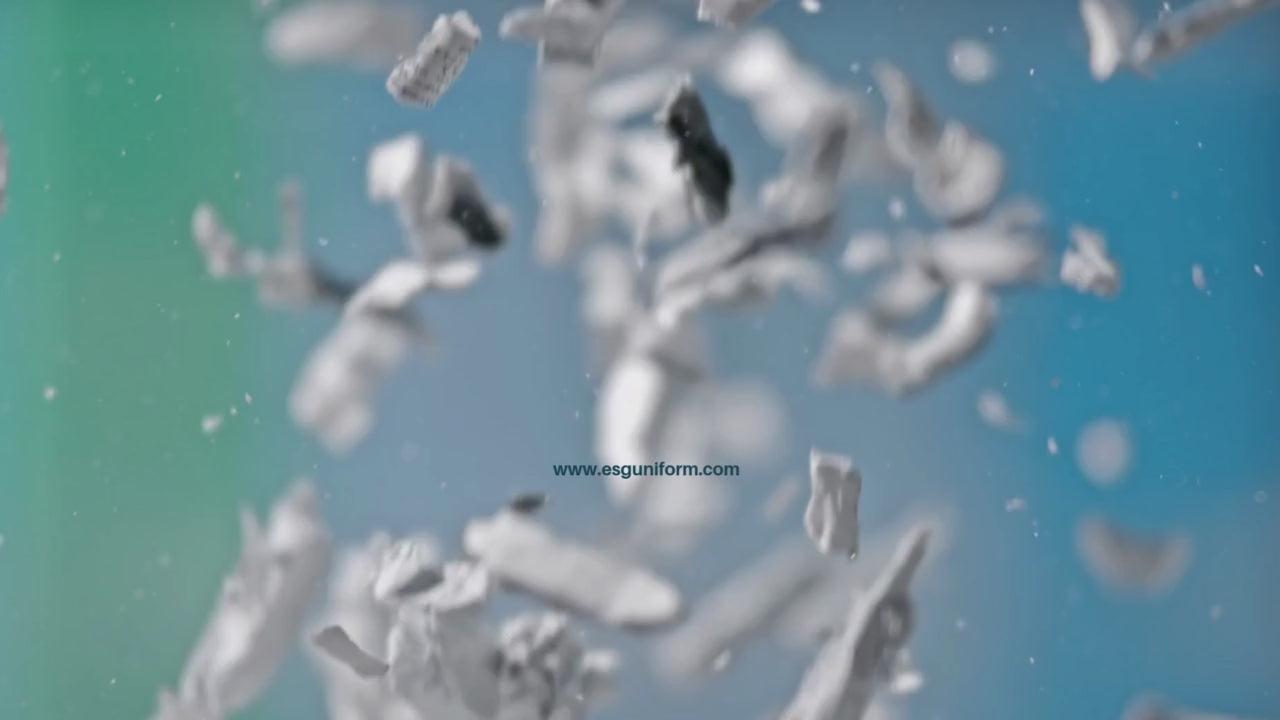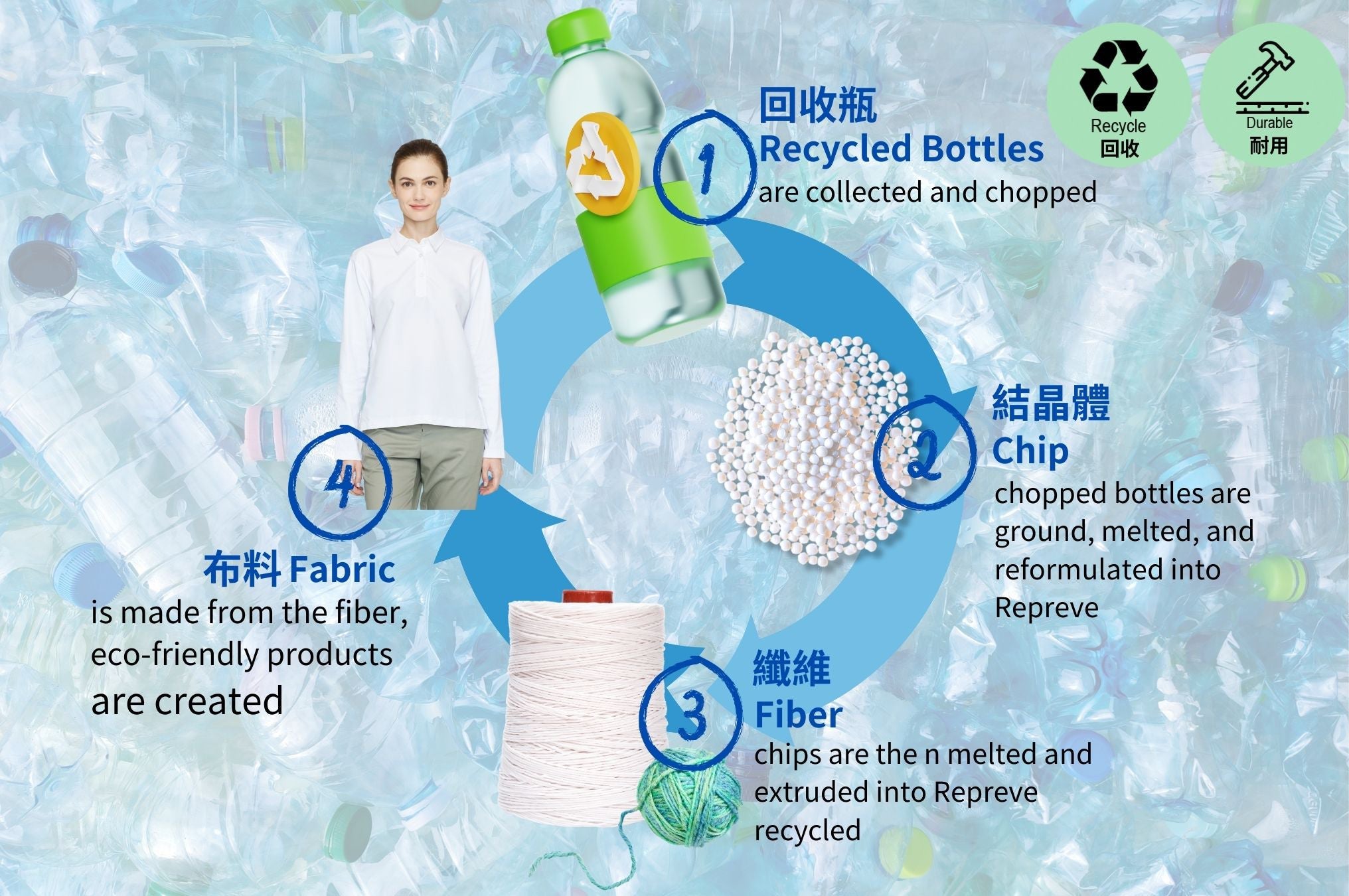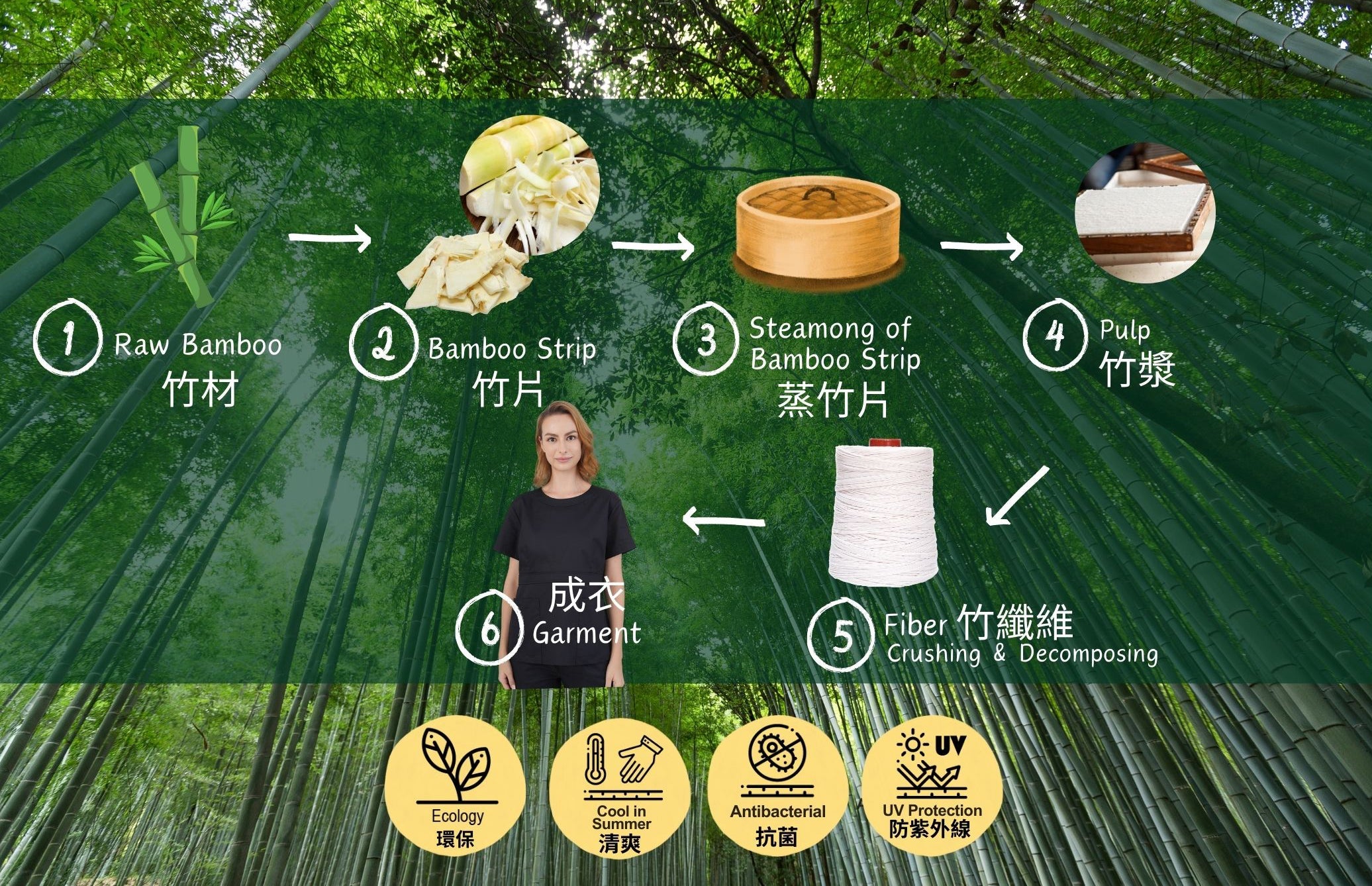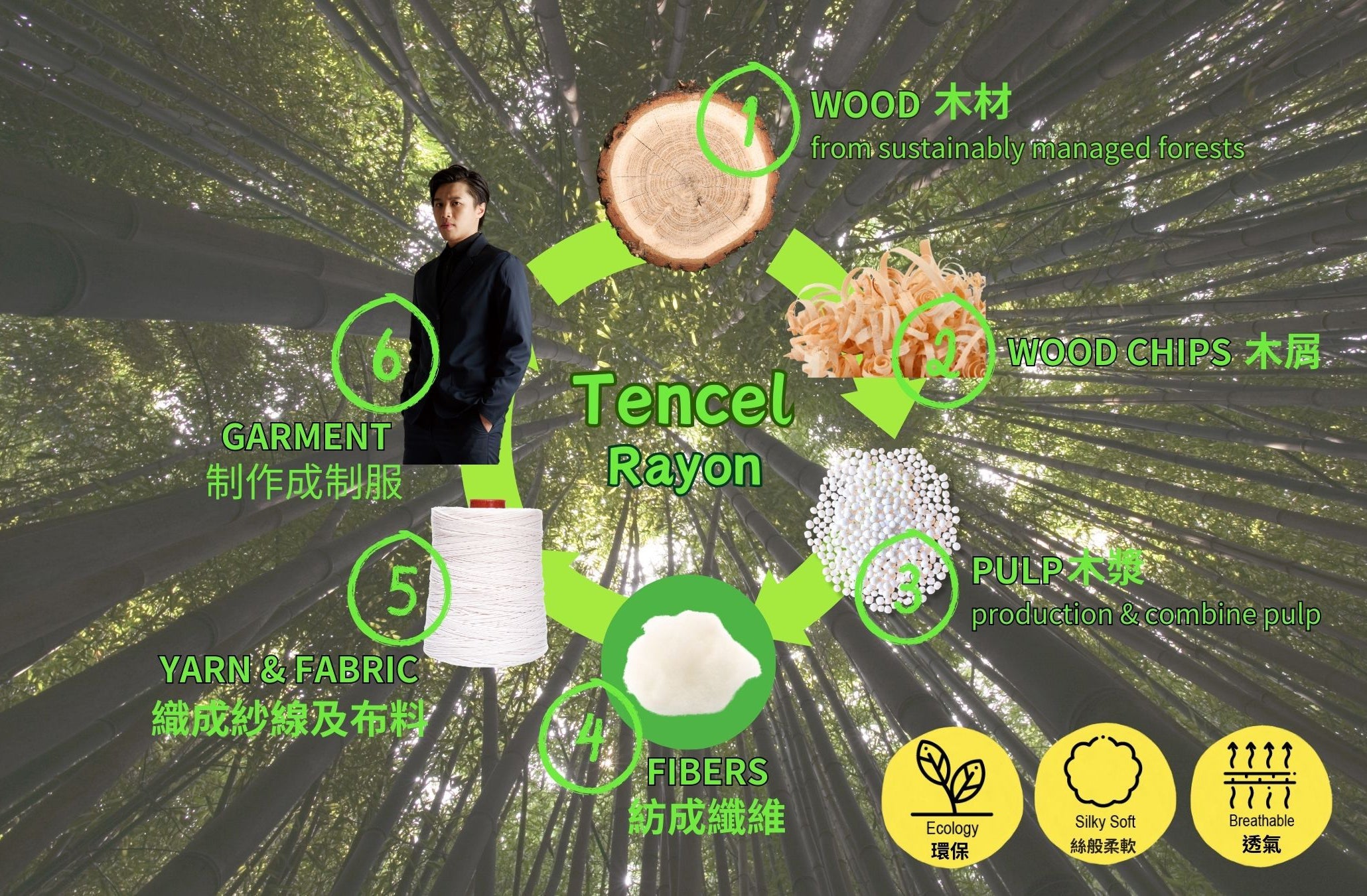Welcome to Circular Clothing
Discover our journey of transforming fashion, one thread at a time, through sustainability and innovation.
Our Sustainable Journey

Chapter 1: Eco-Friendly Materials

Recycled Polyester
Recycled polyester fabric is an eco-friendly and cost-effective alternative to traditional polyester fabric, made from recycled plastic bottles and post-consumer plastic waste. Using recycled plastic bottles to make fabric reduces the amount of plastic waste in landfills and oceans, and also reduces the need for new petroleum-based products.

Bamboo
Bamboo fiber fabric is a natural textile that is made from the pulp of bamboo grass and is known for its softness, breathability, and moisture-wicking properties. It is also hypoallergenic, UV protection and naturally antimicrobial, making it a popular choice for clothing. Additionally, bamboo fiber is eco-friendly, as bamboo is a renewable and fast-growing resource that requires fewer resources to grow compared to other crops.

Sorona®
Sorona is a type of polymer derived from renewable plant-based ingredients, primarily corn. The production process of Sorona consumes less energy and produces fewer greenhouse gas emissions than the production of traditional petroleum-based polymers. This innovative fabric is superior comfort, flexibility, and freedom of movement. Sorona Agile fabric also has excellent shape retention and is resistant to fading, pilling, and wrinkling, making it a durable and long-lasting choice for clothing.

Lyocell/ Tencel™
Lyocell is a type of fabric made from the wood pulp of eucalyptus trees and is known for its softness, breathability, and moisture-wicking properties. It is also environmentally friendly, as the production process uses a closed-loop system that recycles water and solvents, and does not release harmful chemicals into the environment. Additionally, lyocell is biodegradable and can be composted, making it a sustainable choice for clothing and other textiles.
Chapter 2: Sustainable Design
We measure and minimize the carbon footprint of each material, ensuring that our designs are as eco-conscious as they are beautiful.

A comprehensive assessment of our environmental impact and commitment to transparency. Our report provides an in-depth evaluation of our greenhouse gas (GHG) emissions across our operations, supply chain, and product lifecycle.

Case Study
Chapter 3: On-Demand Production
By producing only what is needed, we prevent overproduction and promote a more sustainable consumption pattern.
Smart Factory
•Cloud portal •Smart Grading •3D Fitting •Auto Marker •Single-ply Cutter •MES Hanging System •RFID Prod Info •E-Shipping ticket •Drop shipment

Video
Chapter 4: Upcycling and Downcycling
Even the best tales have their endings, and so did the life of each garment. But at Circular Clothing, endings were merely new beginnings. Worn-out uniforms found new life as premium sweaters through the art of upcycling, while others transformed into functional carpets through downcycling. Each process was a testament to the company's commitment to minimal waste and maximum utilization. The cycle was never broken, just extended, turning what was once destined for the landfill into valuable, cherished items.
Commitment to Sustainable Development Goals (SDGs)
SDG 12: Responsible Consumption and Production
SDG 13: Climate Action
SDG 15: Life on Land
We are dedicated to advancing these goals through our business practices, ensuring a positive impact on our planet and society.
We are dedicated to advancing these goals through our business practices, ensuring a positive impact on our planet and society.



